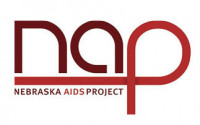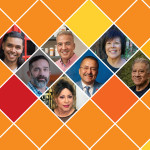Introduction | A-B | C-F | G-M | N-Q | R-Z
NASTAD

Formerly known as the National Alliance of State and Territorial AIDS Directors, NASTAD represents public health officials who administer HIV and hepatitis programs. The nonprofit’s mission is “to advance the health and dignity of people [affected by] HIV/AIDS, viral hepatitis and intersecting epidemics by strengthening governmental public health and leveraging community partnerships.” NASTAD teams conduct training, promote health and racial equity, influence policy, fund harm reduction programs and more all while centering the needs of key populations such as persons of transgender experience, persons who use drugs, persons aging with HIV, and gay, bisexual and other same-gender-loving men—Black and Latino men in particular.
National AIDS Memorial

The National AIDS Memorial originated in 1988 as the Grove, a tranquil site in San Francisco’s Golden Gate Park dedicated to commemorating those lost to AIDS. In 1996, thanks to the efforts of Representative Nancy Pelosi (D–Calif.), President Bill Clinton signed legislation designating the site as the country’s only federally funded national AIDS memorial. In recent years, the National AIDS Memorial’s scope expanded to include stewardship of the AIDS Memorial Quilt with its nearly 50,000 panels. It also offers the Pedro Zamora Young Leaders Scholarship, the Mary Bowman Arts in Activism Award and the AIDS storytelling project Surviving Voices, which collects personal interviews and mini-documentaries, many of which are viewable online.
National Center for HIV, Viral Hepatitis, STD, and TB Prevention

Part of the Centers for Disease Control and Prevention, the National Center for HIV, Viral Hepatitis, STD, and TB Prevention (NCHHSTP) works toward a future free of HIV, viral hepatitis, sexually transmitted infections and tuberculosis alongside partners across public and private sectors as well as on local, federal and state levels. NCHHSTP provides resources, policy guidance, funding and support to both government and nongovernmental organizations. NCHHSTP engages in public health surveillance, prevention research and promotion of school-based health and disease prevention among youth. It also develops programs aimed at preventing and controlling infectious diseases, such as its Equity Initiative.
National Coalition of STD Directors

Based in Washington, DC, the National Coalition of STD Directors (NCSD) represents health department STD (sexually transmitted disease, also known as STI) and HIV directors, their support staff and other community partners across the nation in order to strengthen and unify the public health response to STIs. One of its projects is the STD Clinic Initiative, which aims to increase the capacity of public and private STI clinics for vulnerable Americans. Through its Policy Academy, NCSD trains staff from state and local health departments on how to engage in policy work. NCSD is a founding member of Building Health Online Communities, which aims to improve HIV and STI prevention on dating sites and apps. NCSD’s weekly policy update, “This Week in Congress,” rounds up the latest policy news from the federal government and from around the nation.
National Harm Reduction Coalition

The National Harm Reduction Coalition (NHRC) is a nationwide advocacy organization for people who use drugs. Founded in 1993, the group focuses on overdose prevention, expanding access to clean syringes to all 50 states and training and capacity building for other harm reduction groups. The group aims to build a national harm reduction movement rooted in racial justice and sponsors an annual harm reduction conference. NHRC’s advocacy efforts, which help prevent HIV, can be seen on the federal, state and local levels. From responding to the rise of hepatitis C in Greater Appalachia to saving thousands of lives through a naloxone distribution program in San Francisco, NHRC “creates spaces for dialogue and action that help heal the harms caused by racialized drug policies.”
National HIV/AIDS Strategy

The National HIV/AIDS Strategy (2022–2025) is a four-year road map created to accelerate efforts to end the HIV epidemic in the United States by 2030. Originally launched in 2010 and most recently updated in 2021, the strategy sets specific targets, such as a 75% reduction of new HIV infections by 2025 and a 90% reduction by 2030. In addition to preventing new HIV infections, the strategy’s goals include improving the HIV-related health outcomes of people living with the virus and reducing HIV-related disparities and health inequities. It designates five priority populations as requiring the most focus and resources—men who have sex with men, Black women, transgender women, youth ages 13 to 24 and people who inject drugs.
National Institute of Allergy and Infectious Diseases

For more than 60 years, the National Institute of Allergy and Infectious Diseases (NIAID), part of the National Institutes of Health (NIH), has conducted and supported research to better understand and treat infectious, immunologic and allergic diseases. Decades of NIAID-funded research has led to new therapies, vaccines and diagnostic tests for hundreds of infectious diseases, including tuberculosis, flu, COVID-19 and HIV. The study of HIV remains a priority for NIAID researchers, who continue to lead clinical trials in the hopes of one day developing a safe and effective HIV vaccine. NIAID supports 21 laboratories and offers clinical research training opportunities for pre- and postdoctoral physicians and scientists. This fall, Jeanne Marrazzo, MD, MPH, became NIAID’s sixth director, replacing longtime director Anthony Fauci, MD.
National Native HIV Network

Launched in 2016, the National Native HIV Network (NNHN) is an Indigenous-led initiative that amplifies and unites the voices of American Indian, Alaska Native and Native Hawaiian communities in response to HIV. The NNHN helps the Indian Health Service and other agencies reach American Indian, Alaska Native and Native Hawaiian communities with HIV, STI and hepatitis C testing as well as prevention, treatment and harm reduction strategies. The organization mobilizes communities affected by HIV through peer-to-peer and programmatic support, training and capacity-building assistance. The NNHN hosts bimonthly meetings, conducts webinars, promotes HIV awareness days (including National Native HIV/AIDS Awareness Day) and maintains a social media presence to keep the American Indian, Alaska Native and Native Hawaiian communities up to date on the latest HIV news. The NNHN is currently collecting information to develop the National Native HIV Services Directory.
Nebraska AIDS Project

Founded in 1984, the Nebraska AIDS Project (NAP) was created in response to the early AIDS crisis to support and educate Nebraska communities affected by HIV. The only community-based AIDS service organization in the state, NAP offers Nebraskans (plus residents in 11 counties in Southwest Iowa and two counties in Eastern Wyoming) various services, including HIV education and prevention, support groups, linkage to care and case management. In addition to providing HIV and STI testing, the organization’s education department also offers informational presentations tailored to specific audiences that span topics such as the history of HIV, current statistics and trends, common misconceptions and how to prevent and treat HIV.
90-90-90
unaids.org/en/resources/909090

In 2014, UNAIDS announced the 90-90-90 initiative, an ambitious three-pronged treatment goal: By 2020, 90% of all people living with HIV would know their HIV status, 90% of all people diagnosed with HIV would have received and sustained antiretroviral therapy and 90% of all people on antiretroviral therapy would have viral suppression. Although the global target was not met by 2020, remarkable progress has been made, and the 90-90-90 goal remains a part of the global strategy to end AIDS.
NMAC

The mission of NMAC is to “lead with race” in the fight against HIV and AIDS by normalizing discussions about race within the HIV movement, helping reduce the rate of new HIV diagnoses among people of color and retaining people of color living with HIV in care and treatment. Founded in 1987 as the National Minority AIDS Council, NMAC represents a nationwide coalition of 3,000 faith- and community-based organizations as well as HIV service organizations focusing on communities of color. NMAC is the organizer of the annual U.S. Conference on HIV/AIDS (USCHA) and the Biomedical HIV Prevention Conference. NMAC’s HIV 50+ Strong & Healthy program helps participants living with HIV over age 50 become leaders and advocates for themselves and others. Through its weekly newsletters, monthly webinars and blog posts (which can be found on POZ.com), NMAC empowers HIV communities by sharing the latest news regarding the quest to end HIV.
North Carolina AIDS Action Network

Incorporated in 2010, the North Carolina AIDS Action Network (NCAAN) formed in response to the state’s HIV Medication Assistance Program (formerly ADAP) waiting list—once the longest in the nation. The group succeeded in ending the waiting list, and today North Carolina’s HIV Medication Assistance Program is fully funded. Since 2010, more than 20,000 people have taken action alongside the organization, resulting in many legislative victories for North Carolinians living with HIV and AIDS. NCAAN also works to cultivate and mentor new advocacy leaders by hosting an annual advocacy day in the state legislature and an annual fall conference that offers workshops and community-building opportunities. By empowering community members through outreach and education, NCAAN is improving the lives of people living with and affected by HIV across the South.
NovaSalud

NovaSalud works to improve and strengthen the health and well-being of residents living in Northern Virginia, DC and Maryland. Through the Ryan White Program, the organization provides culturally competent and language-appropriate HIV care services to individuals living with HIV regardless of their ability to pay. NovaSalud also provides free and confidential HIV and STI testing and counseling, condoms and safer-sex kits as well as referrals to other supportive services. Via outreach at health fairs and other community events, NovaSalud educators and staff collaborate with other networks to best support the health needs of its community.
Office of AIDS Research

The Office of AIDS Research (OAR) coordinates HIV and AIDS research across the NIH, the largest public investor in HIV research globally. Because the response to the HIV pandemic requires a multidisciplinary, multi-agency response, OAR collaborates with other federal agencies, clinicians, researchers and community partners to share updates and gather input to ensure that funding is directed to the highest-priority areas within the NIH. Authorized by Congress in 1988, OAR shares timely insights, guidance and updates with researchers and the public. This year’s annual meeting of OAR’s Advisory Council included discussions on HIV and women, the launch of the new NIH OAR Data Hub, updates on HIV clinical practice guidelines and more.
Older Women Embracing Life

Since 2005, the network Older Women Embracing Life (OWEL) has prioritized the needs of senior women living with and impacted by HIV and AIDS. Based in Baltimore, OWEL meets on the first Wednesday of each month and offers mentoring and support to women in a safe, confidential and welcoming environment where they can learn from one another. OWEL members participate in health fairs, workshops, conferences and community events where they share their own life stories and lessons learned to boost HIV awareness and strengthen HIV prevention efforts. OWEL also conducts site recruitment for research efforts with major universities and institutions. In October, the group held its 18th Annual Legends & Young’uns Conference, which featured interactive presentations and breakout sessions on topics including managing menopause, treating and managing HIV, and trauma and resilience.
PEPFAR

Launched in 2003 by the George W. Bush administration, the U.S. President’s Emergency Plan for AIDS Relief (PEPFAR) is a government initiative that has saved an estimated 25 million lives, prevented millions of HIV infections and accelerated progress toward controlling the HIV pandemic in more than 50 countries. Through PEPFAR, the United States has invested more than $100 billion in the global HIV and AIDS response—the largest commitment in history by any nation to address a single disease. One of the most successful global health programs, it has enjoyed two decades of bipartisan congressional support. This year, however, its reauthorization is in jeopardy, as some Republican lawmakers allege that part of the program’s nearly $7 billion annual budget is used to fund abortions, a claim that program leaders and outside experts deny. The deadline to renew the program was in early October, yet at press time PEPFAR’s fate remains unclear.
Positive Impact Health Centers
positiveimpacthealthcenters.org

With three locations serving clients in the greater Atlanta metro area, Positive Impact Health Centers offers primary medical care and HIV specialty services to about 6,500 HIV clients, including HIV and STI testing, treatment, PrEP (nearly 42,000 enrollees), PEP, pharmacies, gender-affirming care, women’s health services, psychiatry, group therapy, peer support, housing assistance and case management. Founded in 1991 and primarily serving African-American and LGBTQ people, in 2022, the agency reported that 91% of its HIV-positive clients were virally suppressed—proof, indeed, of its positive impact.
Positive People Network

Founded by Alecia M. Tramel, who was diagnosed with HIV in 2000, the mission of the Positive People Network is to help end HIV-related stigma and offer social activities to help improve the quality of life for people living with HIV. The group holds workshops and webinars on health disparities, supports people living with HIV around disclosing their status and provides advocacy training. The nonprofit also offers support services for youth, women, men who have sex with men, and trans people. The Miami-based organization works to empower, strengthen and uplift communities of people living with HIV by helping them build skills to improve communication and linking them to other HIV-related organizations.
Positive Women’s Network–USA

Founded in 2008 by a diverse group of women leaders living with HIV, Positive Women’s Network (PWN-USA) is a national membership organization of women living with HIV and their allies. The group inspires, informs and mobilizes women to advocate for change to improve their lives and uphold their rights. Its policy agenda is grounded in social justice and human rights and applies a gender lens to ending the epidemic. PWN-USA leads trainings on advocacy, and its website offers tool kits, resources and webinars on effective organizing and mobilization. In recent years, PWN-USA members have led successful HIV and sex-work decriminalization campaigns in California, Missouri, Nevada and Virginia and helped save access to ADAP in Texas.
Positively Trans
transgenderlawcenter.org/programs/positively-trans

Founded in 2015 as a response to the structural inequities that lead to high rates of HIV and poor health outcomes in the transgender community, Positively Trans (T+) is one of several programs at the Transgender Law Center, a national organization that advocates for and supports transgender and gender-nonconforming (TGNC) people. A network led by trans women of color living with HIV, Positively Trans centers their voices in the HIV epidemic by advocating for policies, addressing inequalities, offering leadership development, preserving digital stories and presenting community-driven research, such as its wellness reports addressing the needs of TGNC people with HIV in various cities.
PrEP4All

PrEP4All aims to provide universal access to PrEP and HIV medications to help end the epidemic. The national organization is spearheading the fight for a National PrEP Program, which would cover PrEP costs for underinsured and uninsured individuals across the United States. Since its founding in 2018, PrEP4All has built a movement by promoting data-driven policy solutions and holding policymakers and pharmaceutical companies accountable. Thanks in part to its advocacy efforts, in 2023, the Biden administration requested $10 billion in funding for a PrEP for All to End the HIV Epidemic program. PrEP4All has also responded to other recent health crises, including COVID-19 and mpox.
Prevention Access Campaign

Since 2016, the Prevention Access Campaign (PAC) has spearheaded the U=U (“Undetectable Equals Untransmittable”) campaign. The goal of the U=U campaign is to spread the message that people on effective treatment with an undetectable viral load cannot transmit HIV through sex. PAC’s U=U campaign has become one of the biggest global health movements in recent years and has helped to dispel the stigma around HIV and transform the lives of millions of people living with the virus.
Prison Health News

Prison Health News (PHN) is an independent information network that uplifts the voices, experience and expertise of currently and formerly incarcerated people. Previously a project of Philadelphia Fight, PHN produces a quarterly newsletter that is read by 5,000 people who are imprisoned across the country. Content includes artwork and writing by people in prison and features articles and resources on topics such as HIV, hepatitis, self-care, nutrition, organizing and more. By responding to requests for health information from people in prisons and jails in the United States, PHN aims to break down prison walls and achieve health and social justice for all.
Introduction | A-B | C-F | G-M | N-Q | R-Z







Comments
Comments